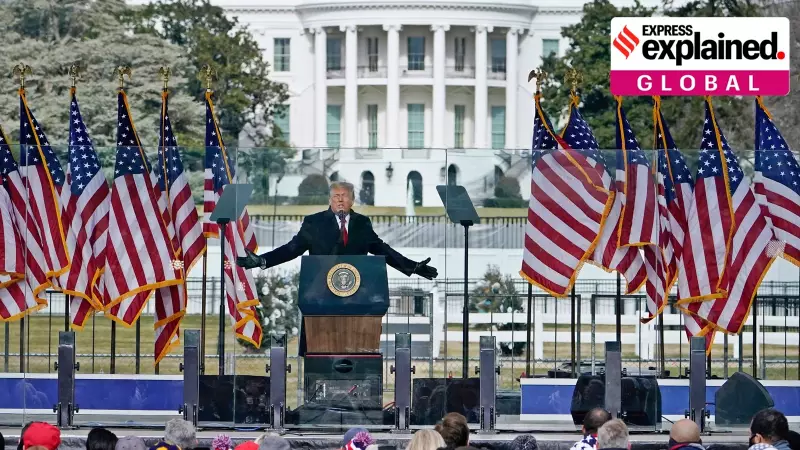
Trump Threatens $1 Billion Lawsuit Against BBC Over Documentary Editing
Former US President Donald Trump has declared he has an obligation to sue the British Broadcasting Corporation (BBC) for defamation, alleging the network turned his calming January 6 speech into a radical one. This legal threat follows the resignations of two senior BBC officials, Director General Tim Davie and CEO Deborah Turness, amidst the controversy. The turmoil stems from a documentary titled Trump: A Second Chance?, which aired in October 2024 and revisited the Capitol Hill riot.
The Core of the Controversy: A Controversial Edit
The central issue involves the editing of President Trump's speech from January 6, 2021. The BBC's Panorama programme combined two clips from his address. The edit presented the sequence as: We're gonna walk down to the Capitol and I'll be with you immediately followed by and we fight. We fight like hell...
However, in the full, unedited speech, these phrases were separated by over 50 minutes. The complete context shows Trump stating, I know that everyone here will soon be marching over to the Capitol building to peacefully and patriotically make your voices heard. The later portion included the line about fighting like hell. A leaked internal BBC memo from Michael Prescott, a former adviser to the BBC's editorial standards board, confirmed that this edit created the impression that Trump said something he did not, thereby materially misleading viewers.
Legal Demands and Internal Fallout at the BBC
Through his lawyer, Alejandro Brito, Trump sent a formal legal notice to the BBC making three key demands: a full retraction of all false and defamatory statements, a public apology, and appropriate compensation for the harm caused. The letter explicitly warned that failure to comply would result in a lawsuit seeking damages of $1 billion.
The notice argues that the documentary harmed Trump's reputation and finances by suggesting he encouraged violence, which damaged his standing with political donors. In response, BBC Chair Samir Shah acknowledged the edit did not meet editorial standards and announced a review, but denied any deliberate attempt to mislead. The incident has sparked allegations of an internal power struggle and comes amid broader criticism of the public broadcaster from conservative circles.
Can Trump's Legal Challenge Succeed?
Whether this legal threat materializes into a successful court case faces several significant hurdles under US law.
Jurisdictional Hurdle: The BBC is based in the United Kingdom, and the Panorama programme was made primarily for a UK audience. Trump's lawyers plan to file the case in Florida, but a court there may decide it lacks jurisdiction if the documentary was not widely available or viewed within the state.
The High Bar for Defamation: US defamation law is heavily influenced by the First Amendment's protection of free speech. For a public figure like Donald Trump, the legal standard is exceptionally high. He must prove actual malice, meaning the BBC knew the edited information was false or acted with reckless disregard for the truth.
Furthermore, Trump must demonstrate that the documentary caused additional serious harm to his reputation, which is a challenging task given the extensive existing reporting and official findings about the January 6 events. The BBC's main defences will likely focus on jurisdiction and the absence of malicious intent. Even if Trump were to win a judgment in a US court, enforcing it in the UK would be difficult due to differing laws on free expression. The BBC has until Friday to respond to the demand notice.





